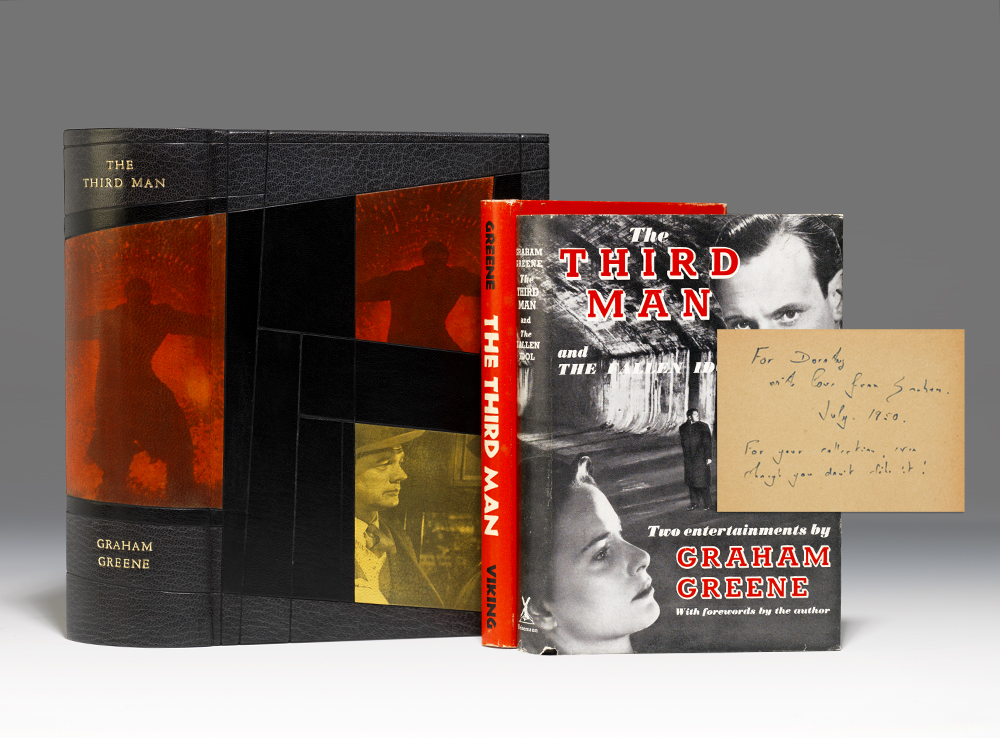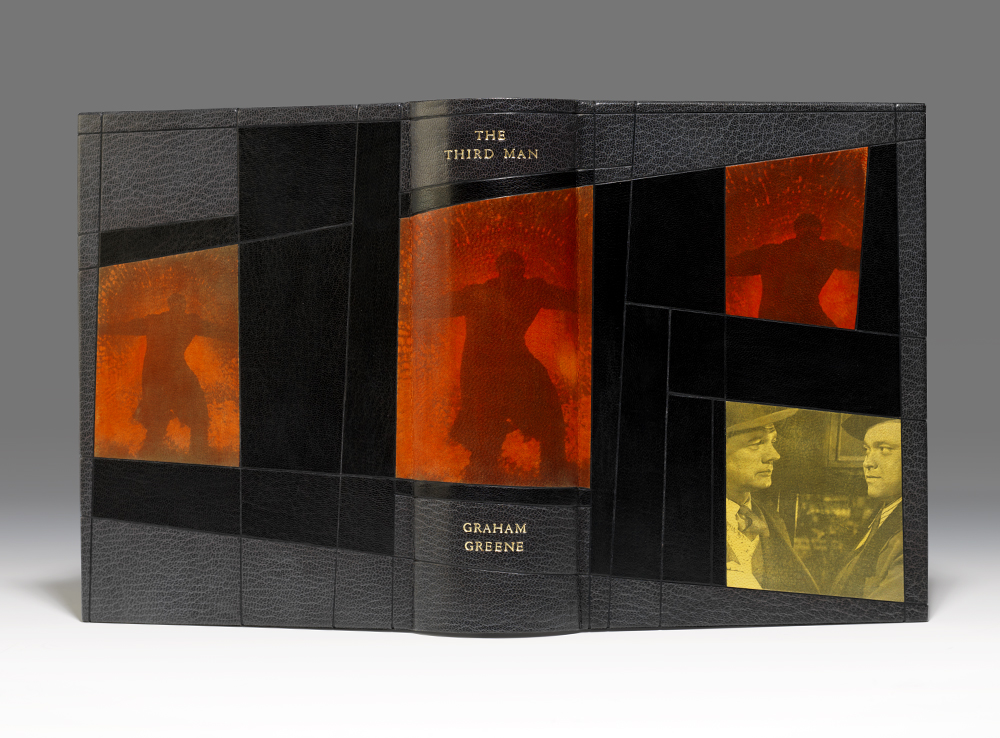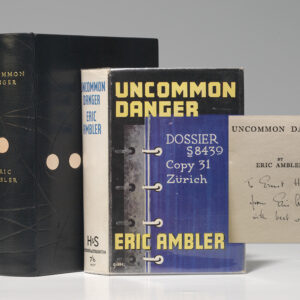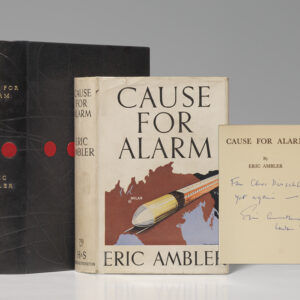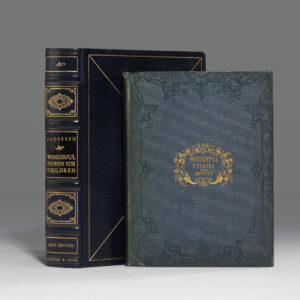Description
“FOR YOUR COLLECTION, EVEN THOUGH YOU DON’T LIKE IT!”:
A RARE PRESENTATION/ASSOCIATION COPY OF THE FIRST ENGLISH
EDITION OF THE THIRD MAN, INSCRIBED IN THE YEAR OF PUBLICATION
BY GREENE TO HIS WARTIME LOVER DOROTHY GLOVER,
HOUSED WITH THE NOVEL’S AMERICAN ISSUE
GREENE, Graham. The Third Man. WITH: The Third Man and Fallen Idol. New York / London: Viking / William Heinemann, 1950, (1950). Two volumes. Octavo, original red and black cloths, original dust jackets. Housed together in a custom clamshell box.
First editions of both the English and the American editions of Greene’s classic postwar thriller, with the first English edition an especially memorable presentation/association copy, inscribed in the year of publication by Greene to his lover, “For Dorothy, with love from Graham, July 1950. For your collection, even though you don’t like it!”
This exceptional pairing features both the English and the American first editions of Graham Greene’s novel for The Third Man, adapted by him from his original screenplay for the definitive 1949 film noir classic of the same name. Influenced by Greene’s relationship with British spy Kim Philby, The Third Man also relied on Greene’s research in postwar Vienna, a city crowded with refugees and rife with corruption. This collection of both first editions is especially notable in that this copy of the English edition is an extremely rare presentation/association copy, inscribed by Greene in the year of publication to his ex-lover Dorothy Glover, who is often seen as the basis for the character of Helen in The Heart of the Matter (1948). In addition Greene’s wartime love affair, in which he lived “in the midst of danger with Dorothy, inspired his 1951 novel The End of the Affair (Sherry II:186). Though their romantic relationship ended in 1948, the two “remained friends until her death in 1971” (Shelden, 231). The two editions differ in that the American edition, which precedes the British book by only a few months, notably omits “all negative references to the Russians and Americans in the occupation force,” a discrepancy explained by Greene and film director Carol Reed’s preparation of two versions, one of which was “a typescript of the story from which they had eliminated all the potentially offensive references to the United States or the Soviet Union. They used this sanitized version to show the American and Russian officers whose permission was needed for filming on location. Greene mistakenly sent one of these typescripts to Viking,” the American publishers, but sent the correct version to Heinemann (Shelden, 278-9). Fallen Idol, contained in this first English edition of Third Man, first appeared as “The Basement Room” in 1935 and was retitled Fallen Idol for the 1948 film, which was “Greene’s first real work for the cinema and his favourite among his film scripts” (Sherry II:239-41). Miller 26a, 26c. See Miller 14. The Third Man and The Fallen Idol is from the library of Dorothy Glover. As Greene intimates in his inscription to her, both shared a “passion for Victorian detective fiction? [and] over the years they built up a large and immensely valuable collection” (Shelden, 231).Both copies in fine condition, elegantly housed in a custom morocco box.
